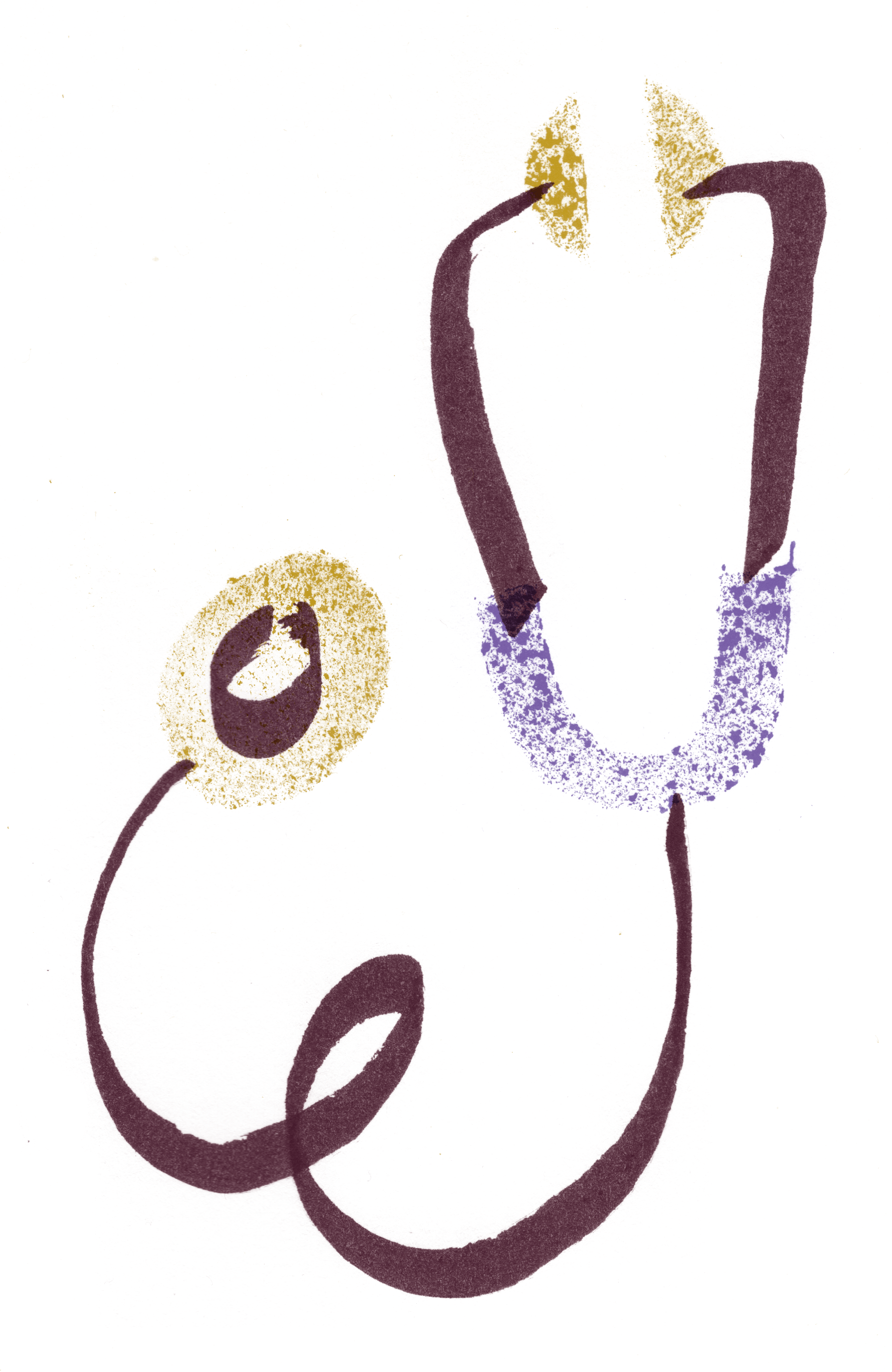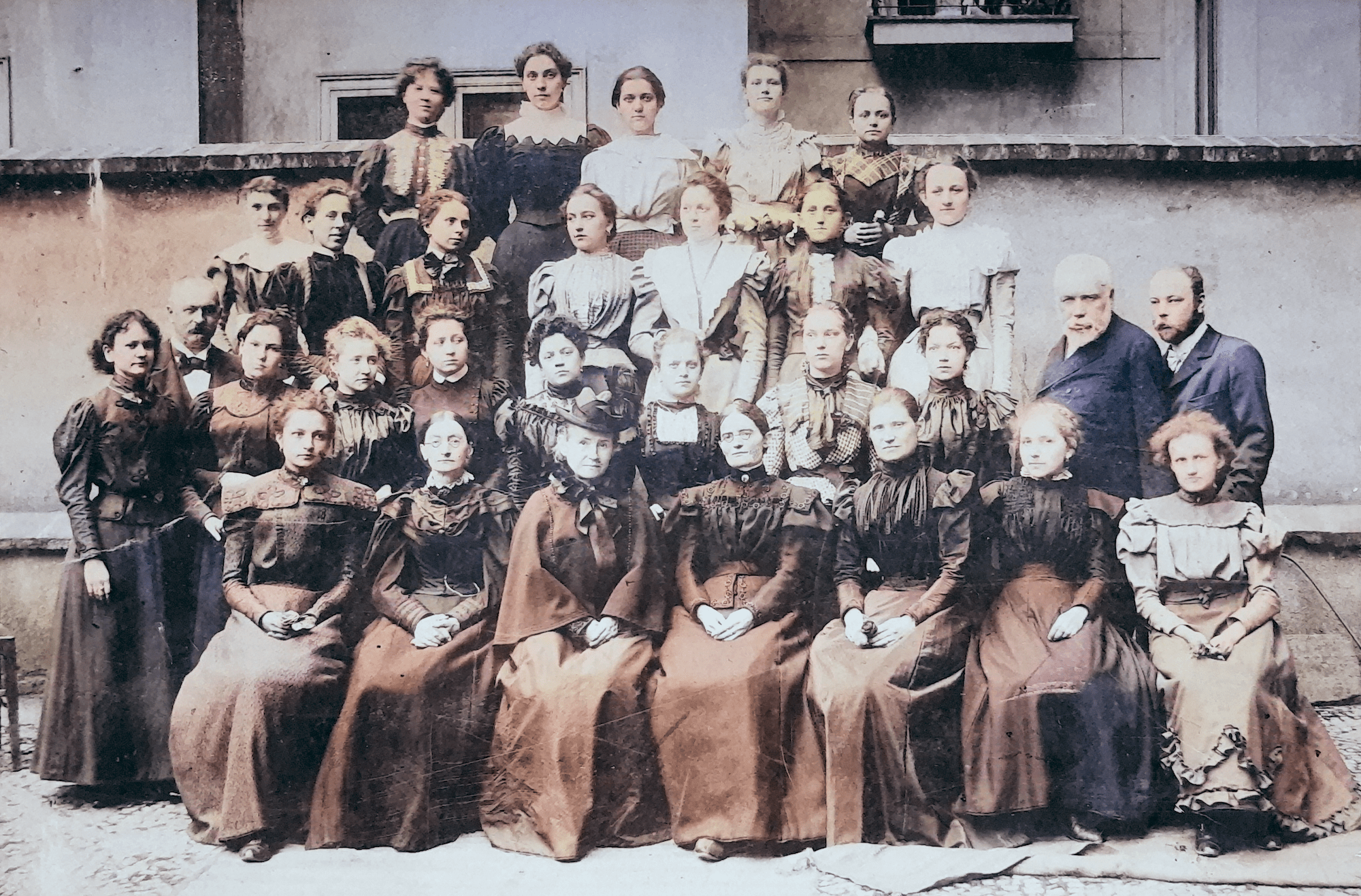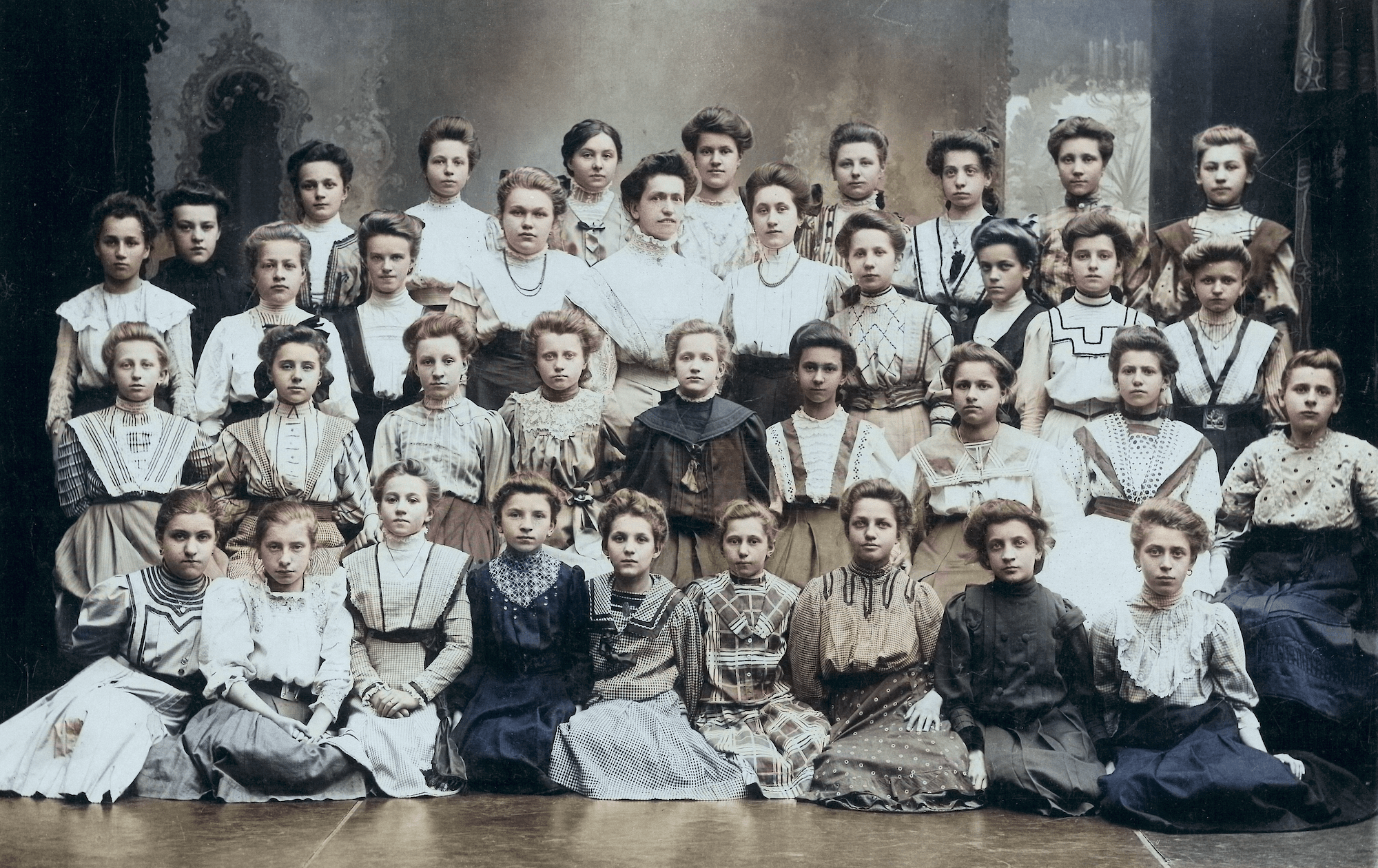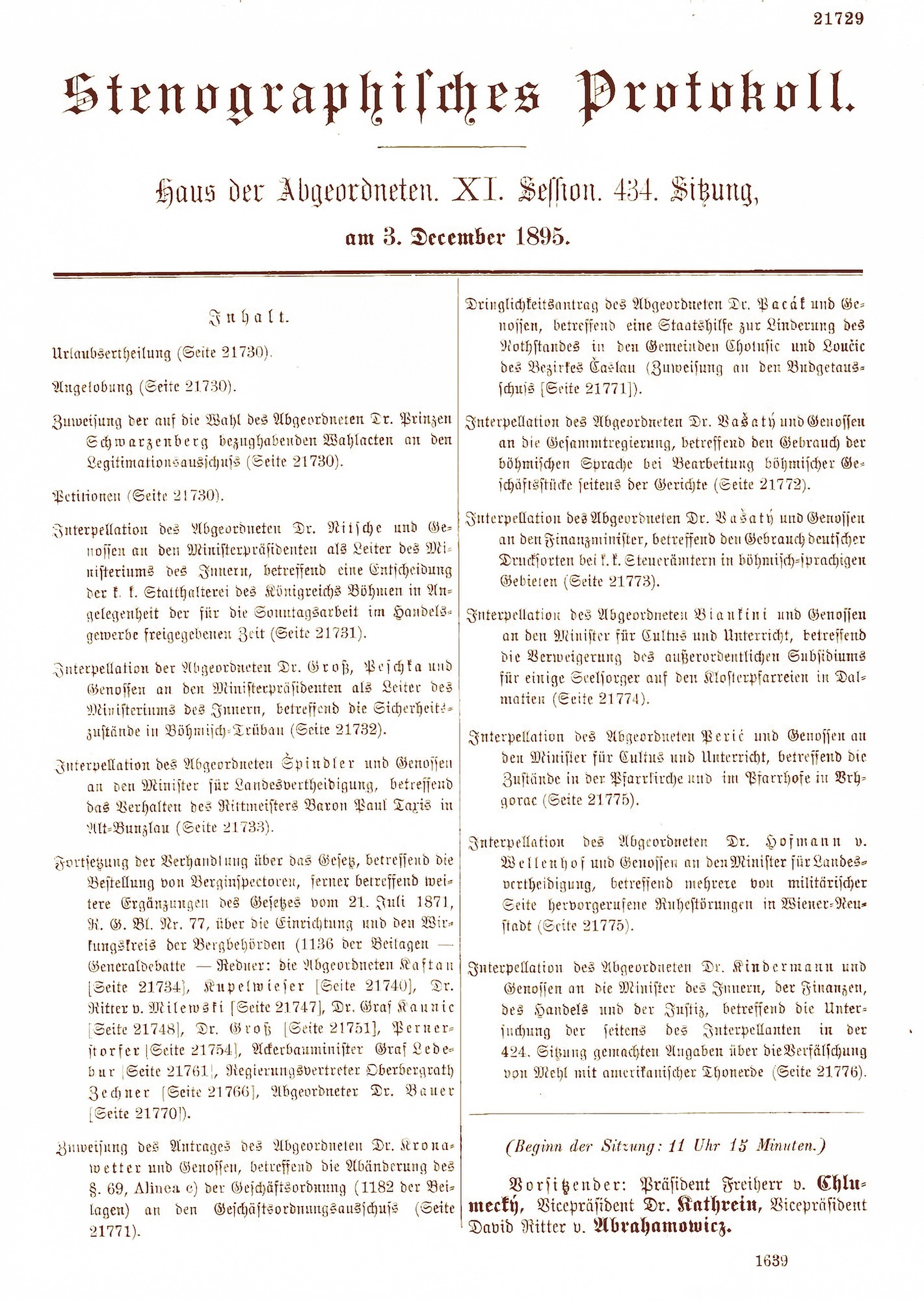▲
Minerva’s Professorial Choir (Eliška Krásnohorská in the 1st row in the middle in the hat), Eliška Krásnohorská Archive, Gender Studies, o.p.s.
Women Can...
Study
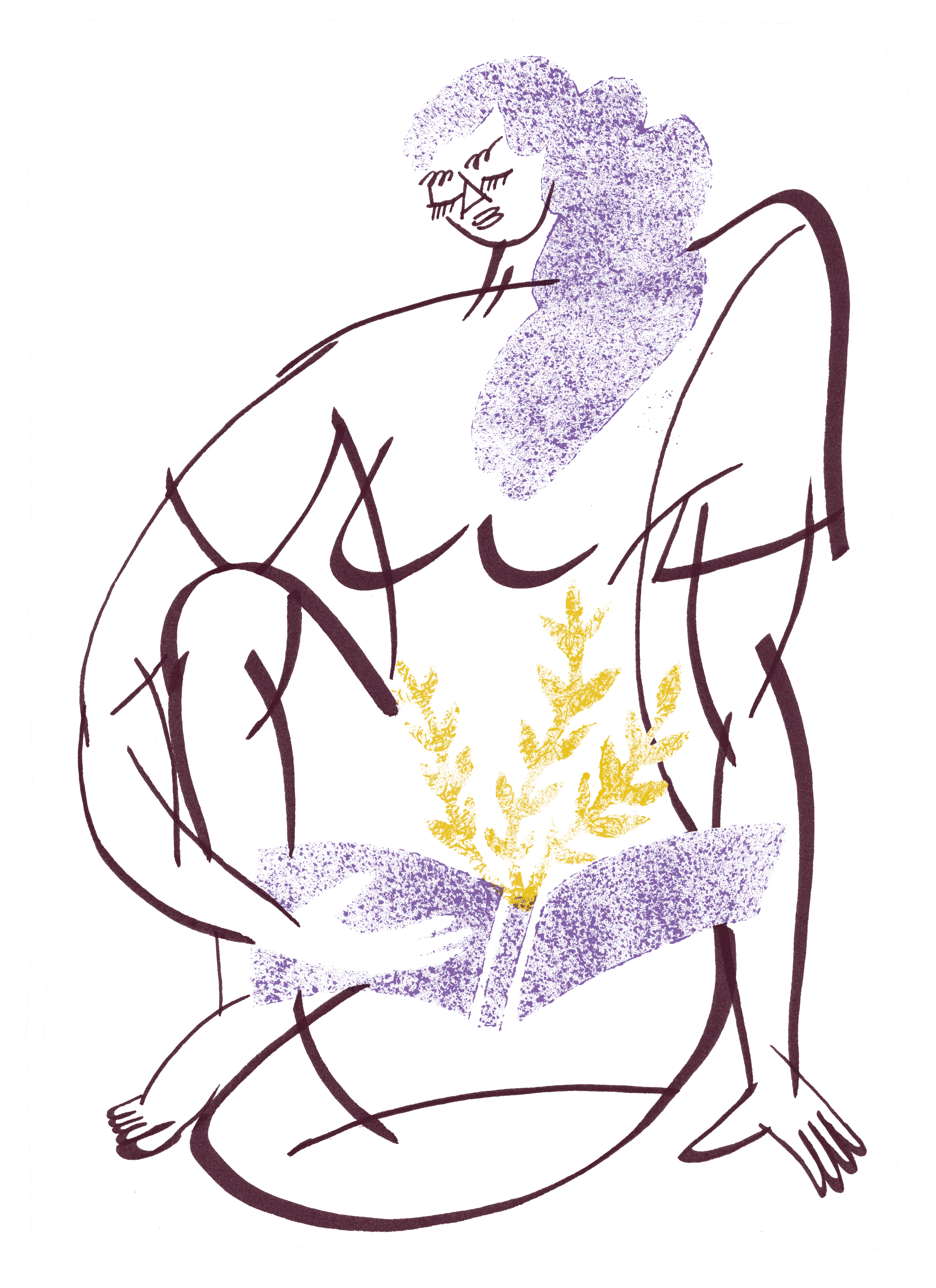
- Compulsory schooling, introduced by Maria Theresa (the ruler of Habsburg dominions) in 1775, provided for primary education also for girls (trivium: reading – writing – arithmetic). However, once a girl reached the age of 12, which often coincided with her first menstruation, the possibility of education ended.
- Higher education was forbidden to women until the 1890s, leaving many fields and jobs unavailable to them.
- In 1890, Minerva, the first girls’ grammar school in Central Europe, was founded by Eliška Krásnohorská. Thanks to her tireless work, she opened the way for women to receive an education equal to that available to men.
- A few years later, Eliška Krásnohorská initiated the petitions that led to the permission of girls to study at the university. Minerva graduates became the first proper university students, first in the philosophical faculties (1897), then in the medical faculties (1900).
- After 1900, women were able to obtain doctoral degrees, which allowed them to work in areas they previously didn’t have access to (e.g. they could have their own medical practice).
- It was only after 1918 that women were able to study law, thanks in part to the initiative of the Association of Academically Educated Women.


▲
Girls’ class with teacher Marie Gregorová in Pilsen, Eliška Krásnohorská Archive, Gender Studies, o.p.s.
▲
Petition for permission to establish a girls’ gymnasium (grammar school) Minerva, magazine supplement of Ženské listy, No. 3, 1890
MUDr. Anna Honzáková, the first Czech physician, To the Birth of the Czech Minerva, on the 50th anniversary of the founding of the Institute, published by the Society for the Support of Poor Schoolgirls, 1890–1940, p. 3
“We, the first Czech grammar school students, entered the old Vojtěšská school, where the entire girls’ high school comprised of a single room. We loved our dear founder of Minerva for her liberating act, by which she enabled us to fulfil our most ardent desire: to achieve true spiritual and existential freedom through study.”
